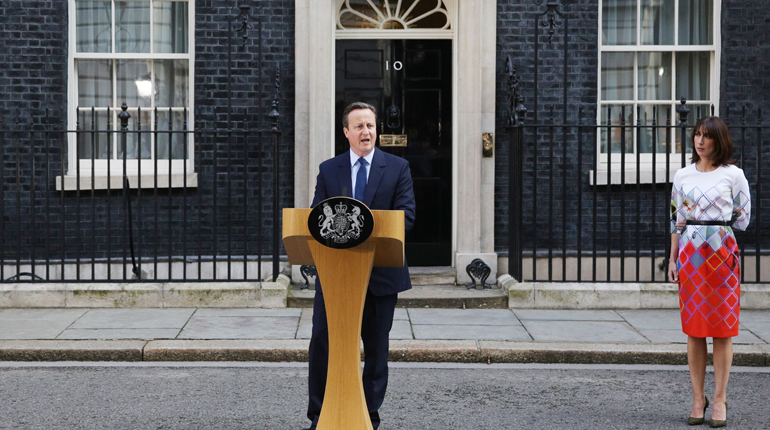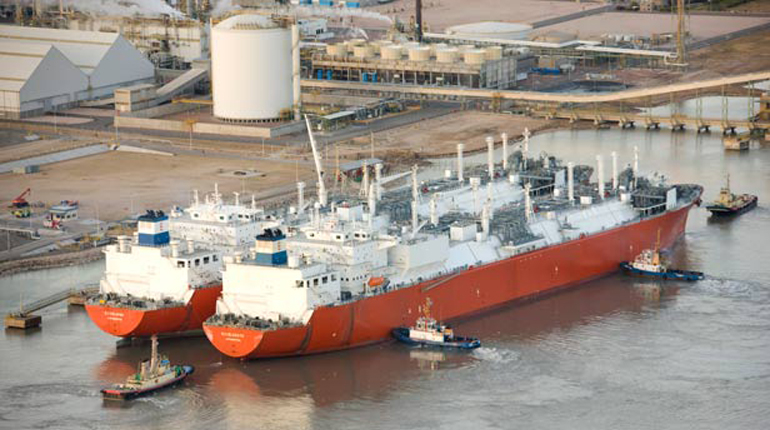 UK Prime Minister David Cameron, with his wife Samantha, announcing his resignation on Friday. (PA)
UK Prime Minister David Cameron, with his wife Samantha, announcing his resignation on Friday. (PA)
The UK’s historic decision to leave the EU has caused market turbulence and will redefine future trading and economic relationships across Europe. However, there may only be a limited long-term impact on the European and UK energy and climate sectors, experts told Interfax Natural Gas Daily on Friday.
"Right now, the world at large appears to be lamenting the UK’s decision to leave the EU and the ramifications this has for the unity of the remaining bloc. It has hit sentiment hard," Augustin Eden, a research analyst at Accendo Markets, told Interfax Natural Gas Daily. "The oil price is very sensitive to matters concerning global growth," he added.
"I can’t see any shock to the system in the interim," Paul Smith, a lawyer with Lawyers for Britain, a group that campaigned for the UK to leave the EU, told Interfax Natural Gas Daily. "Certainly [there will be] no shock comparable to things like Russian involvement in European politics," he added. However, Smith forecast that certain technical aspects of energy trading would need to be renegotiated.
UK Prime Minister David Cameron said on Friday morning that he would step down by October. The Brexit vote triggers Article 50 of the Treaty of Lisbon, which lays out the rules for the exit of a country from the EU, and will be overseen by Cameron’s successor in autumn, Smith said.
"There is actually no obligation under Article 50 to reach an agreement, but I expect energy and climate change to fall within [one]," Smith said. "If no agreement were to be reached I don’t think that would be problematic. The UK will continue to be an actor in climate change and energy."
"There is no reason to see a fundamental change of direction," said Jonathan Gaventa, a director at energy and climate organisation E3G’s London office. He said that UK climate change policy in recent years has largely been driven by the country’s own laws. The UK’s national carbon floor price has also had more market impact than the EU’s Emissions Trading System, he said.
Investors will struggle with market uncertainty in the meantime. "We are already seeing an awful lot of financial currency volatility and it is unclear how long that volatility will last. It is likely to have an effect on any form of infrastructure investment in the UK, including energy," Gaventa said.
Experts have said the UK’s declining oil and gas output has caused the country to take a greater interest in continental energy markets to enable it to import electricity and gas cheaply and reliably. During the referendum campaign, there was broad recognition of the benefits of Europe’s internal energy market.
"It is too early for firm proposals [for] the exact nature of the relationship, but we expect and hope for early signs from leaders about the desire for UK participation in the internal energy market to continue," Gaventa added.







Talk to us
Natural Gas Daily welcomes your comments. Email us at [email protected].